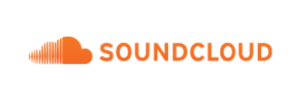Confounding Variables
A Confounding Variable, also known as a confounder or confounding factor, is an external variable in a statistical model that correlates directly or inversely with both the dependent variable and the independent variable. The presence of a confounding variable in a statistical model can distort or confound the effect of the independent variable on the dependent variable, leading to a false conclusion about the relationship between the two.
In other words, a confounding variable is an outside influence that changes the relationship between the independent and dependent variables. This can lead to incorrect conclusions about cause-and-effect relationships.
Examples
Example 1: Suppose you are studying the relationship between exercise and heart health, with exercise as the independent variable and heart health as the dependent variable. Age could be a confounding variable here, as it is related to both exercise (younger people tend to exercise more) and heart health (older people have more heart problems).
Example 2: In a study examining the relationship between smoking (independent variable) and lung cancer (dependent variable), age could again be a confounding variable. Older people are more likely to have smoked for a longer period of time and are also more likely to develop lung cancer due to age-related factors.
In experimental design, researchers try to control for confounding variables to isolate the effect of the independent variable on the dependent variable. This can be done through random assignment in experimental studies, or through statistical methods like regression analysis in observational studies.
Loved by customers at every stage of growth














